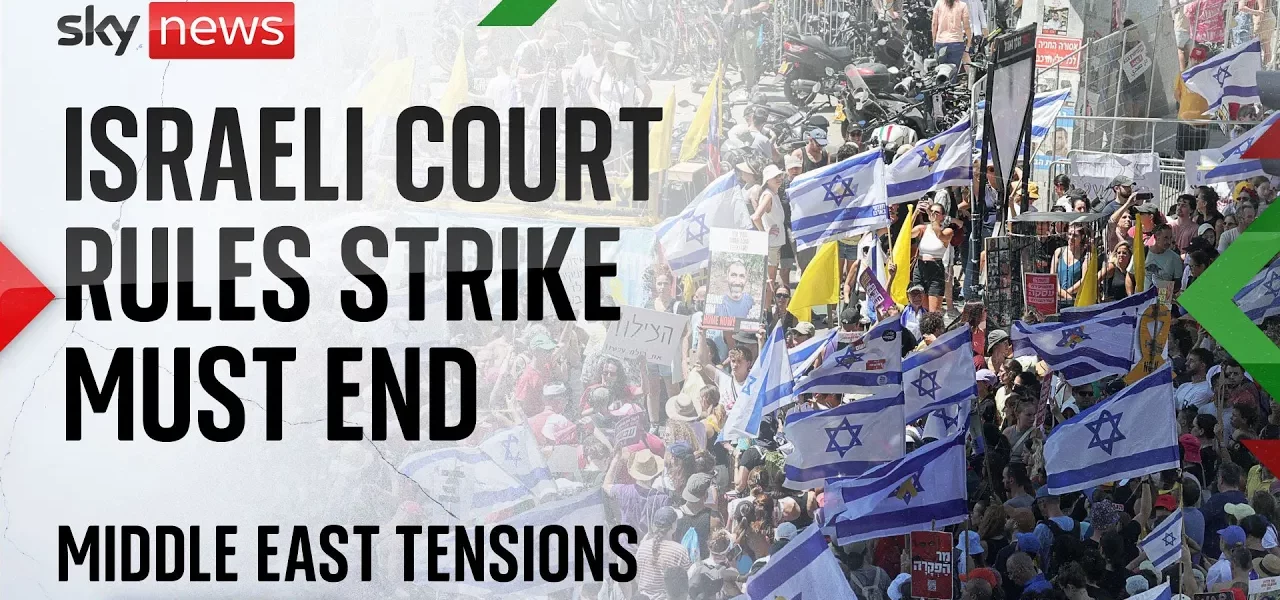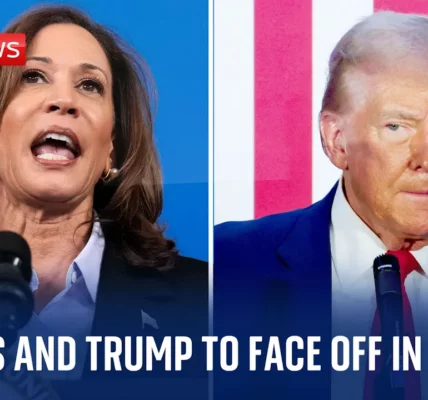Protests Erupt in Tel Aviv Amid General Strike in Israel

This article explores the ongoing protests in Tel Aviv, where thousands have taken to the streets in response to a general strike across Israel. The public outcry reflects deep-seated frustrations with the Israeli government and calls for immediate action regarding the situation in Gaza.
Introduction to the Protests
On a significant afternoon in Tel Aviv, thousands of citizens have gathered to voice their dissent against the Israeli government, blocking major highways and participating in a general strike that has seen widespread public sector participation. This movement, now in its second day, has escalated as demonstrators demand action from Prime Minister Benjamin Netanyahu’s administration while also calling for a ceasefire in Gaza. The protests highlight a growing discontent among the populace, leading to a critical examination of the government’s response to ongoing conflicts.
The Context of the General Strike
The general strike taking place across Israel has resulted in the closure of public services, businesses, and transportation systems. Here are the key components of the strike:
- Public Sector Impact: Many public sector workers have joined the strike, leading to significant disruptions in services.
- Closure of Businesses: Shops and restaurants across the country have ceased operations in solidarity with the protesters.
- Transportation Halts: Public transportation has come to a standstill, with major airports, such as Ben Gurion, halting flights.
- Legal Opposition: The Israeli government is actively opposing the strike in court, indicating a tense standoff between authorities and citizens.
Key Motivations Behind the Protests
The protests are driven by several crucial factors, which resonate deeply within the Israeli populace. These motivations include:
Frustration with Government Policies
Many demonstrators feel that the Netanyahu government has not adequately addressed pressing issues, particularly those related to national security and the conflict in Gaza. This sentiment has prompted a call for greater accountability and responsiveness from the administration.
Call for a Ceasefire
A significant aspect of the protests is the demand for an immediate ceasefire in Gaza. Protesters are urging the government to take action to bring soldiers home and secure the release of hostages. Here are specific points raised by demonstrators:
- Immediate cessation of military operations.
- Negotiation for a comprehensive ceasefire deal.
- Safe return of Israeli soldiers and hostages.
Public Support and Participation
The scale of participation in the protests underscores the widespread support for the movement. Many citizens are feeling compelled to join in, driven by a sense of urgency and solidarity with those affected by the ongoing conflict.
International Response and Implications
The protests have not only captured national attention but have also drawn international scrutiny. Notably, discussions are reportedly taking place within the U.S. administration regarding the situation in Gaza:
U.S. Government Involvement
Reports indicate that President Biden and Vice President Harris are convening with the National Security team to address the ongoing crisis. The potential for a “take it or leave it” deal is being considered, reflecting frustration over the stalled negotiations. Key points include:
- Assessing the viability of a ceasefire agreement.
- Evaluating the roles of mediators like Qatar and Egypt.
- Understanding the implications of continued unrest in Israel for U.S. foreign policy.
Conclusion
The protests in Tel Aviv represent a critical moment in Israel’s sociopolitical landscape, fueled by public frustration and a demand for government accountability. As the general strike continues and international discussions evolve, the outcomes of these movements could have far-reaching implications for both domestic policy and international relations. Citizens are determined to make their voices heard, emphasizing the necessity for government action and a resolution to the ongoing conflict in Gaza. It remains to be seen how the government will respond to these mounting pressures. We encourage readers to stay informed and engaged with this evolving situation.
“`




